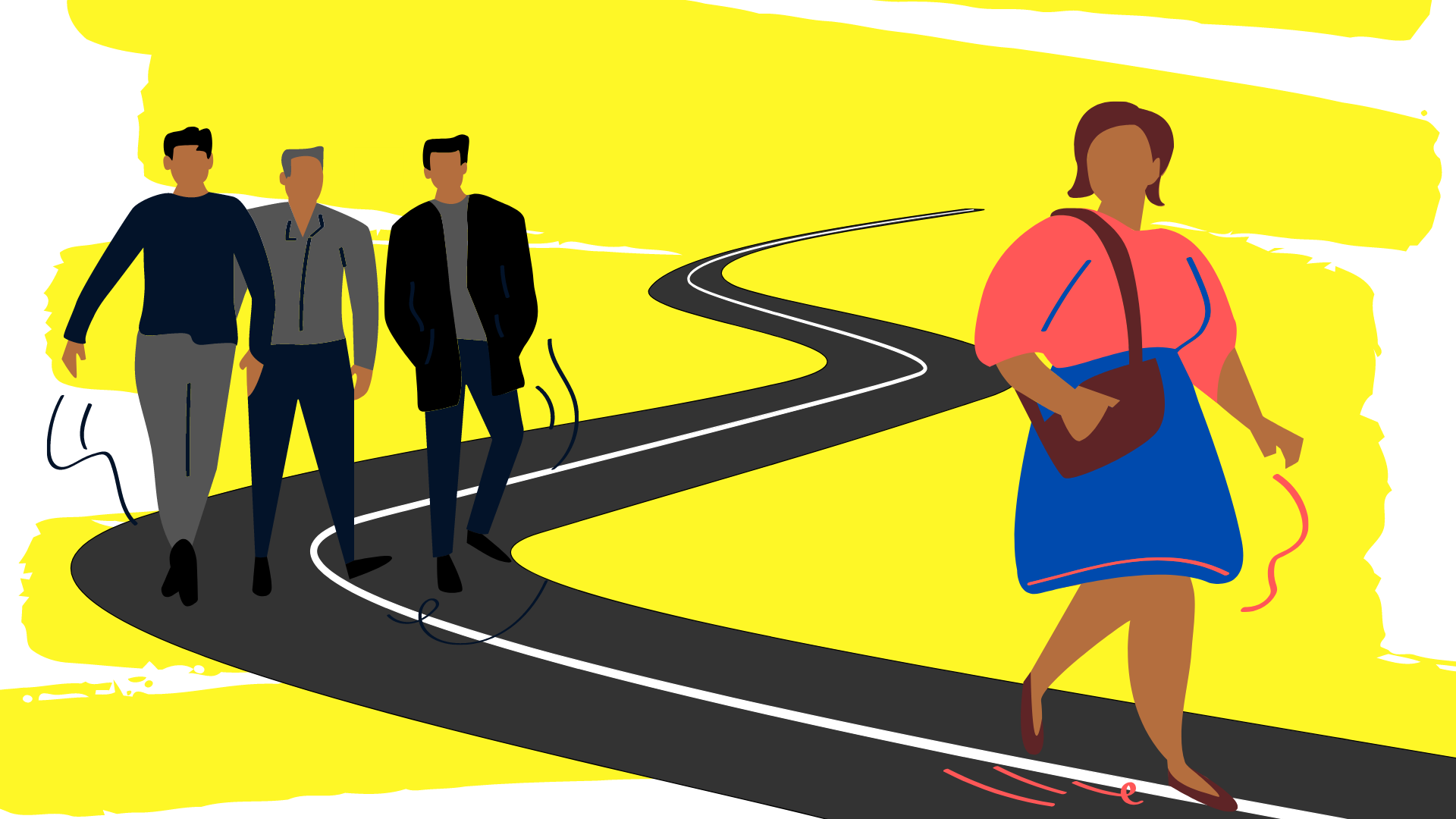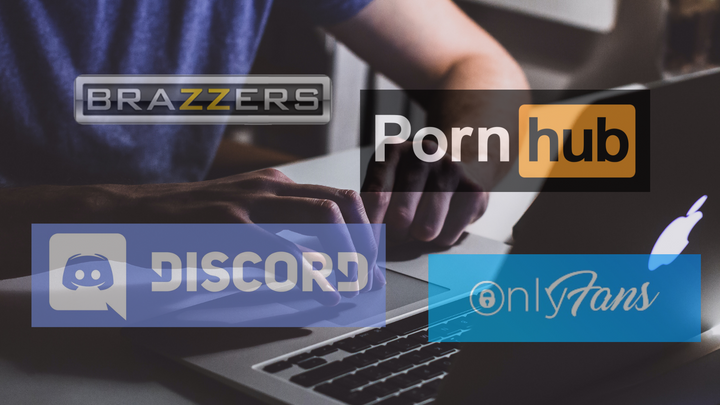Sexual Assault By A Bunch of Nobodies
The #MeToo movement took down famous and powerful men. But how do we hold "normal" men accountable?

The #MeToo Movement was founded by Tarana Burke in 2006, but it did not receive global attention until 2017, when actress Alyssa Milano sent a viral tweet asking those who’ve been sexually assaulted or harassed to write “me too.” Since then, many women have come forward, naming powerful men, such as Harvey Weinstein and Bill Cosby, among others in the media, as their assailants. In 2015, the documentary, “The Hunting Ground,” shed light on sexual assault on U.S. college campuses and the perpetuation of rape culture in fraternities that has been concealed by their institutions, resulting in survivors facing backlash for speaking up.
Despite the public reckoning on sexual assault and harassment, especially in the workplace, and more support for survivors, most do not report to law enforcement. “Justice system needs to step up and do better, because the system hasn’t changed,” Marissa Faye Cohen, a survivor and author of “Breaking Through the Silence: The Journey to Surviving Sexual Assault,” told 4W.
Women who came forward about being sexually assaulted by men in power received a platform to seek justice, because these men were already in the public eye. The #MeToo movement “accomplished a lot by holding people accountable for what they have done in a public spectrum,” said Jessica Leigh, a NYC writer, who’s endured sexual harassment in the workplace. “The problem is, if you don’t have power publicly, it’s hard to do that.”
So, what do women do when they are assaulted by men who go unnoticed?
My introduction to sexual assault was at a party when I was 15. I had walked into a bedroom where an unconscious girl about my age was surrounded by a group of older boys. One of the boys had his penis out and was attempting to shove it in her mouth while his friends egged him on. When I broke up their twisted game, I was met with kicks from their steel toe Doc Martens. After dragging the girl out of the room and notifying the underage party host, I left without knowing what happened next. The bruises on my legs were the only evidence that I had been there. I didn’t realize what I had witnessed was sexual assault until many years later.
This experience isn’t uncommon for young girls. Cohen, who was also naive about sexual assault, was raped by her first boyfriend. “I had no relationship experience. I didn’t realize it was rape,” she told me. “Our education does a disservice, if we don’t have these conversations, kids don’t know what to expect.”
“[The #MeToo movement] accomplished a lot by holding people accountable for what they have done in a public spectrum. The problem is, if you don’t have power publicly, it’s hard to do that.”
At 22, I was working as a waitress in Manhattan, when my female coworkers suggested I carry a tea kettle of boiling water with me when I had to get something from the basement—to splash on the guys in the kitchen if they tried to cop a feel while I was going up or down the stairs. Harassment and unwanted touching were part of the job.
When Leigh was working in a restaurant, she stumbled upon her manager masturbating to porn in the basement. He had stopped masturbating, but kept the porn on, asking her if she liked it while she continued to do her job. “I was living paycheck to paycheck. I put up with it because I thought it was the only choice. I had to act like it never happened, he knew he had me,” said Leigh.
During my time in the service industry, I often participated in late night partying with other workers from neighboring restaurants. One time, I woke up to being spooned by a cocaine dealer (a.k.a the sous chef of a fancy West Village bistro) while he jerked off against my backside with his hand in my underwear.
Stephanie, a chef from the Bronx, had experienced something similar when she was 20. Her boyfriend’s half brother, 20 years her senior, hired her to host a social event for his clients. “Drink as much as you want,” he told her. “I had four glasses of wine on an empty stomach, I was pretty drunk and asked for food, but there wasn’t any left,” said Stephanie. “I wish I was assertive, he knew I was wasted and underage. He encouraged me to drink more.”
“I was living paycheck to paycheck. I put up with it because I thought it was the only choice.”
Later that night, she was in a taxi with him and passed out. She woke up to the cab driver screaming, “Get off of her!” Her dress was pulled up and her stockings down. “I was confused and ashamed,” Stephanie said. “It was somebody who’s close to me in a close circle. I never confronted him about it, then I blamed myself.”
She saw him several times after that and, when she did, he mentioned that night as if it were a fun one. “I was wearing this blue dress I loved and every time I see him, he mentions that night as ‘once in a blue moon’ in reference to my dress.” Stephanie suffers extreme anxiety from the experience. She sees it as “a scab that he picks at.”
Completely removing yourself from the person who violated you is often an important step to healing. When I was assaulted, I never spoke or saw that person again, and I was able to move on. “I realized a lot in rehashing it,” Stephanie said. After talking with her, I asked her why she had to see him again, which prompted a conversation with her boyfriend, who agreed she didn’t have to. If you can’t throw the perpetrator in jail or confront him, you should be able to cut him out of your life.
Out of sight out of mind allows you to forget the details, but it doesn’t always provide closure. I often turn my experiences into fiction. Hiding behind a character gives me a sense of anonymity and I am able to create closure by writing out an imagined confrontation I had with the person who assaulted me. It is my way of taking back the control.
M., a NYC filmmaker who wished to remain anonymous, has done the same. She was assaulted six years ago by a classmate, who was in the same film program. She had come forward about the assault in her school, but was met with criticism and alienation.
“When I cried, my teacher told me to stop being a victim.”
“Teachers loved the student who assaulted me and when I wanted to turn my experience into a screenplay, my teacher segregated me from the other students and hindered my ability to collaborate. I didn’t achieve the project and, when I cried, my teacher told me to stop being a victim,” said M. Since then, she has moved on in her career and is writing a new screenplay about the situation. “I don’t want sadness, I want something to be fixed about it.” Her way of getting closure is to create her own narrative about it.
Years after Cohen’s abusive relationship ended, she confronted her ex-boyfriend about the way he treated her and he apologized. “I forgave him because holding onto it wasn’t doing anything for me, and I forgave myself for thinking I had some part in this, to see this wasn’t my fault,” said Cohen. Cohen regularly helps survivors break through the silence and take control of their past traumas.
This past year, Leigh became friends with the restaurant owner’s ex-wife who knew the manager that harassed her. “I needed someone who was there to know. Being able to talk to her was the closest thing I could get to closure. It made me feel good,” said Leigh.
“We were assaulted and harassed by a bunch of nobodies. Who wants to hear our stories about men who have nothing much to lose?”
Whether you are in school, at a job, party, or with someone you know, sexual assault and harassment is unfortunately incredibly common. While the #MeToo movement encouraged victims of men in power to speak up, we can now do better by opening up the conversation to all survivors.
Cohen, Leigh, Stephanie, M. and I weren’t sexually assaulted by a famous actor, a politician, or a public figure. We were assaulted and harassed by a bunch of nobodies. Who wants to hear our stories about men who have nothing much to lose? Where do we go from here?
The #MeToo movement was an important step in confronting workplace sexual assault and harassment, but it still left many women out. For us, the “normal people” who have been assaulted by average Joes, justice will not go to bat... We have to swing that bat in order to make peace with ourselves. Although these experiences have stained us, we can move on, with healing and sharing our experiences through art or discussion, as we try to avoid the next nobody.
Only when we know about the violence women and girls face are we able to make a difference. Help us expose male violence by becoming a monthly donor! The generous support of our readers helps to pay our all-female staff and writers.
Enter your email below to sign in or become a 4W member and join the conversation.
(Already did this? Try refreshing the page!)





Comments